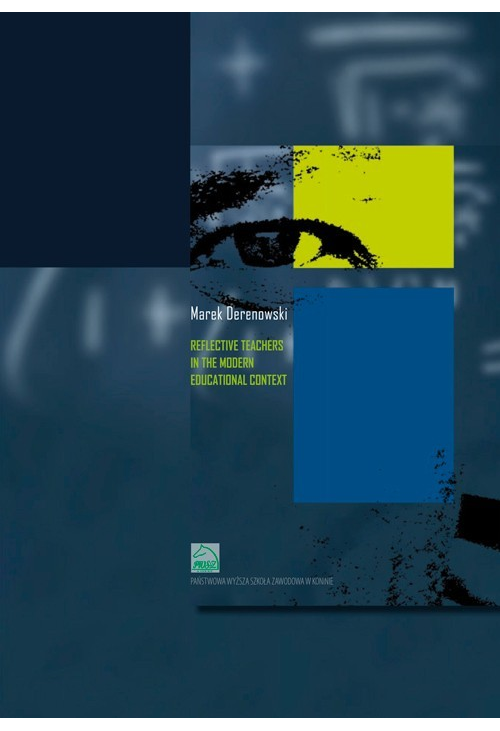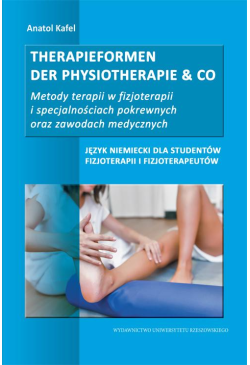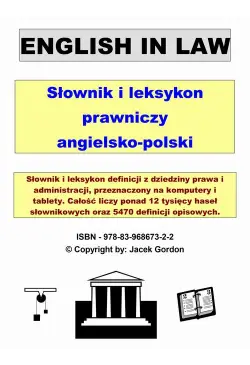
- -14%
ebook Reflective teachers in the modern educational context
Marek Derenowski
Wydawca:
Akademia Nauk Stosowanych w Koninie
Rok wydania:
2012
Publikacja ma na celu zapoznanie czytelników ze specyfiką pracy nauczyciela, a także z procesem rozwijania refleksyjności nauczycielskiej. Opisuje zmieniającą się rolę nauczyciela w klasie i przedstawia wybrane formy rozwoju zawodowego nauczycieli. Jeden z rozdziałów poświęcony został badaniom dotyczącym rozwijania refleksyjności nauczycielskiej, opartych na dziennikach nauczycielskich. Całość może stanowić doskonałe uzupełnienie kursu metodycznego dla studentów, a także funkcjonować jako materiał pomocny przy pisaniu pracy dyplomowych i magisterskich.
Spis treści ebooka Reflective teachers in the modern educational context
INTRODUCTION 7CHAPTER 1. THE CHANGING ROLE OF THE TEACHER 13
1.1 The nature of roles 13
1.2. Methodology and the teachers’ roles 14
1.3. Teacher-centerdness vs. learner-centerdness 14
1.4. Cultural dimensions of teachers roles 19
1.4.1. Teacher roles in Western culture 20
1.4.2. Teacher roles in Eastern culture 21
1.5. An overview of teacher’s roles in various language teaching methods 22
1.5.1. Teacher centered methods 24
1.5.1.1. Grammar Translation method 24
1.5.1.2. Direct method 26
1.5.1.3. Audiolingual method 27
1.5.2. Learner centered methods 28
1.5.2.1. Community Language Learning 29
1.5.2.2. Suggestopedia 30
1.5.2.3. The Silent Way 31
1.5.2.4. Total Physical Response 32
1.5.2.5. Natural Approach 33
1.5.2.6. Communicative Language Teaching 34
1.6. Teacher roles in the contemporary classroom 36
1.6.1. Teacher roles reflecting institutional factors 36
1.6.2. Roles reflecting the influence of attitudes and beliefs 37
1.6.3. Roles reflecting a personal view of teaching 38
1.6.4. The teachers’ roles determined by their personal views 38
1.7. Diversity of roles and their characteristics 39
1.7.1. Motivator 40
1.7.2. Controller 40
1.7.3. Assessor 42
1.7.4. Organizer 42
1.7.5. Prompter 43
1.7.6. Participant 44
1.7.7. Resource 44
1.7.8. Tutor 45
1.7.9. Counselor 45
1.7.10. Facilitator 47
CHAPTER 2. DESCRIBING TEACHERS AND TEACHING 49
2.1. Models of language teacher education 49
2.1.1. The craft model 49
2.1.2. The applied science model 50
2.1.3. The reflective model 51
2.2. Teching strategies 54
2.2.1. The intarlingual vs. crosslingual strategy 54
2.2.2. The analytic vs. experiential strategy 58
2.2.3. The explicit vs. implicit strategy 62
2.3. Teacher beliefs 64
2.3.1. Beliefs about learners 66
2.3.2. Beliefs about learning 68
2.3.3. Beliefs about language teaching 69
2.3.4. Beliefs about themselves 70
2.3.5. Beliefs about language teaching as a profession 71
2.3.6. Beliefs about the program and the curriculum 72
2.4. Teacher decision making 73
2.4.1. Planning related decisions 73
2.4.2. Interactive decisions 74
2.4.3. Evaluative decisions 74
2.5. Professional competences of a teacher 75
2.6. Good language teacher 77
2.6.1. Interactive skills 78
2.6.2. Pedagogical skills 80
2.6.3. Language skills 81
2.6.4. Dydactic skills 82
2.7. Effective teaching 83
2.8. Teacher’s motivation 86
2.8.1. The definition of motivation to teach 86
2.8.2. Teacher motivation and social contextual influences 87
2.8.3. Negative influences on teacher motivation 89
2.8.3.1. Stress 89
2.8.3.2. Restricted autonomy 90
2.8.3.3. Insufficient self-efficacy 91
2.8.3.4. Lack of intellectual challenge 91
2.8.3.5. Inadequate career structure 92
2.8.4. The motivation of language teachers 93
2.8.5. The Pygmalion effect 94
2.9. Professional burnout 96
2.9.1. Causes of stress and professional burnout 96
2.9.2. Maslach’s theory of burnout 98
2.9.3. Psychosocial determinants and correlatives of burnout 103
2.9.3.1. Sociodemographic variables 103
2.9.3.2. Personality and individual variables 104
2.9.3.3. Variables connected with work and its organization 106
2.10. Professional development 107
2.10.1. Defining professional development 107
2.10.2. Professional and personal development 109
2.10.3. Professional development and commitment 109
2.10.4. Reasons for teacher development 110
2.10.4.1. Institutional perspective 110
2.10.4.2. Personal perspective 111
2.10.5. Teacher’s education and development and their influence on education service 112
2.10.6. Professional development vs. career promotion 113
CHAPTER 3. THE PROCESS OF BECOMING A REFLECTIVE TEACHER 117
3.1. The concept of reflective teaching 118
3.2. Thinking about reflective teaching 119
3.2.1. The idea of reflection 120
3.2.2. Critical reflection 120
3.3. Different approaches to reflective teaching 121
3.3.1. Technical Rationality 121
3.3.2. Reflection-in-action 122
3.3.3. Reflection-on-action 122
3.3.4. Reflection-for-action 122
3.3.5. Action research 123
3.4. A process for reflection 125
3.5. Reflective development 126
3.5.1. Exploring through observation 126
3.5.2. Exploring through action research 131
3.5.3. Exploring through supervisor 132
3.5.4. Exploring through journal writing 134
3.5.4.1. What is a journal? 134
3.5.4.2. The reasons for journal writing 135
3.5.4.3. Journal writng skills 136
3.5.4.4. Journal writing strategies 137
3.5.4.5. What do teachers write about? 138
3.5.4.6. Different types of journals 139
3.5.4.7. Types of responses 141
CHAPTER 4. DIALOGUE JOURNAL AS A MEANS OF INCREASING TEACHERS’ REFLECTIVITY – STUDY 145
4.1. Aims of the research 145
4.2. Study questions 146
4.3. Study design 147
4.4. The instruments 147
4.5. Subjects 147
4.6. The results of the study 148
4.7. Conclusions 171
4.8. Suggestions for further study 173
BIBLIOGRAPHY 177
APPENDIX 1 189
APPENDIX 2 191
APPENDIX 3 193
APPENDIX 4 195
APPENDIX 5 197
Szczegóły ebooka Reflective teachers in the modern educational context
- Wydawca:
- Akademia Nauk Stosowanych w Koninie
- Rok wydania:
- 2012
- Typ publikacji:
- Ebook
- Język:
- polski
- Format:
- Liczba stron:
- 198
- Miejsce wydania:
- Konin
Recenzje ebooka Reflective teachers in the modern educational context
-
Reviews (0)

Na jakich urządzeniach mogę czytać ebooki?
- -14%
-14%
16,00 zł
13,76 zł















@CUSTOMER_NAME@
@COMMENT_TITLE@
@COMMENT_COMMENT@